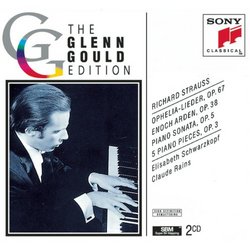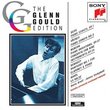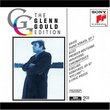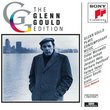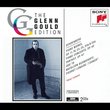An Interesting GG Set...
L. E. Roberts | 05/11/2004
(5 out of 5 stars)
"Tennyson's Enoch Arden, edited and set for recital with musical interludes. I've always liked Claude Rains; and, needless to say, GG is superb here: my only complaint is rather in the form of a wish or suggestion: I wish GG (or Sony) had simply released GG playing Strauss' music without recitation. Why? While Rains is great, and the poem is nice--a few times around--it later wears thin: its dated Victorian sentimentality. We end up hearing more Rains and Tennyson than GG and Strauss. Still, this is a unique and interesting performance; and GG's realization of Strauss' piano music is scintillating. The earlier Piano Sonata is great, as well as the Klavierstucke.
GG's collaboration with Elisabeth Schwarzkopf is infamous. GG always admired Dame Liz; and he wanted to record many lieder with her (viz., Schoenberg's, Hindemith's, etc.). The problem was this: Gould wanted to lead in the aesthetic realization of any collaboration. He was able to do so with Menuin, Laredo, and some lesser vocalists, etc.; however, Schwarzkopf was not to be outdone: she was already a great and respected soloist, and she found GG's eccentric vision for realization too unusual. Indeed, she took offense at GG's playing of the songs. So, after a few cuts, the session was called off short--and that was that. Well, what can one say? Sometimes great minds don't always work well together."
FANTASTIC RECITING VOICE AND STRAUSS' UNDESERVEDLY NEGLECTED
L. E. Roberts | Escondido, CA | 12/09/2008
(5 out of 5 stars)
"I bought this album to get Claude Raines reciting Tennyson's "Enoch Arden." It did not disappoint me, in fact it was incredible. A somewhat forgotten actor, who seldom had the roles he deserved, and who possessed one of the finest speaking voices in the 20th century, Mr. Raines recited the poem such that I felt like pulling to the side of the road (I was driving at the time of listening) and bursting into tears. As Kipling once said of someone, "The man could read." This is not to take away from the rest of the album. Elizabeth Schwarzkopf's "Ofelia Lieder" is wonderful, as only she is singing lieder. She had a voice equalled by very few sopranos (soprani), and they didn't sing lieder! Her performance ranks with her recording of the "Four Last Songs" with George Szell. To get to the star of the album (it is the Glenn Gould Edition, after all), he performs the Piano Sonata, Op. 5, and the 5 piano pieces, Op.3, with which I was unfamiliar. I had always known Strauss as an opera, tone poem and lieder composer, but these are powerful pieces, not unlike some of Brahms' lesser known solo piano works, and are played by Gould with a power and tempo that I had previously associated only with Robert Casadesus. Also, God be praised, he doesn't sing, hum, or make other unitelligible noises during any of the performances. For those who love lieder, spoken voice, and great solo piano, this is a wonderful album."
